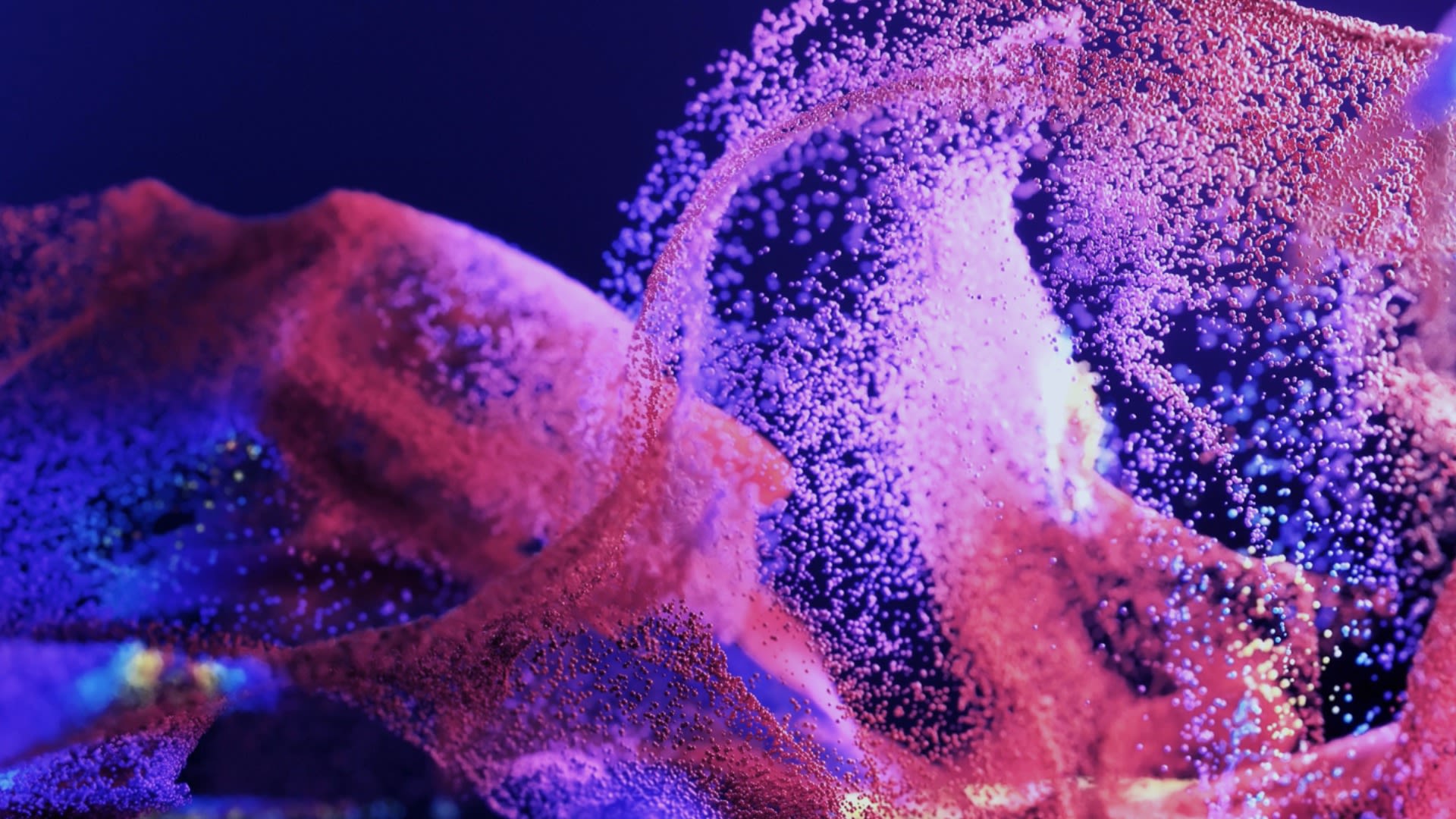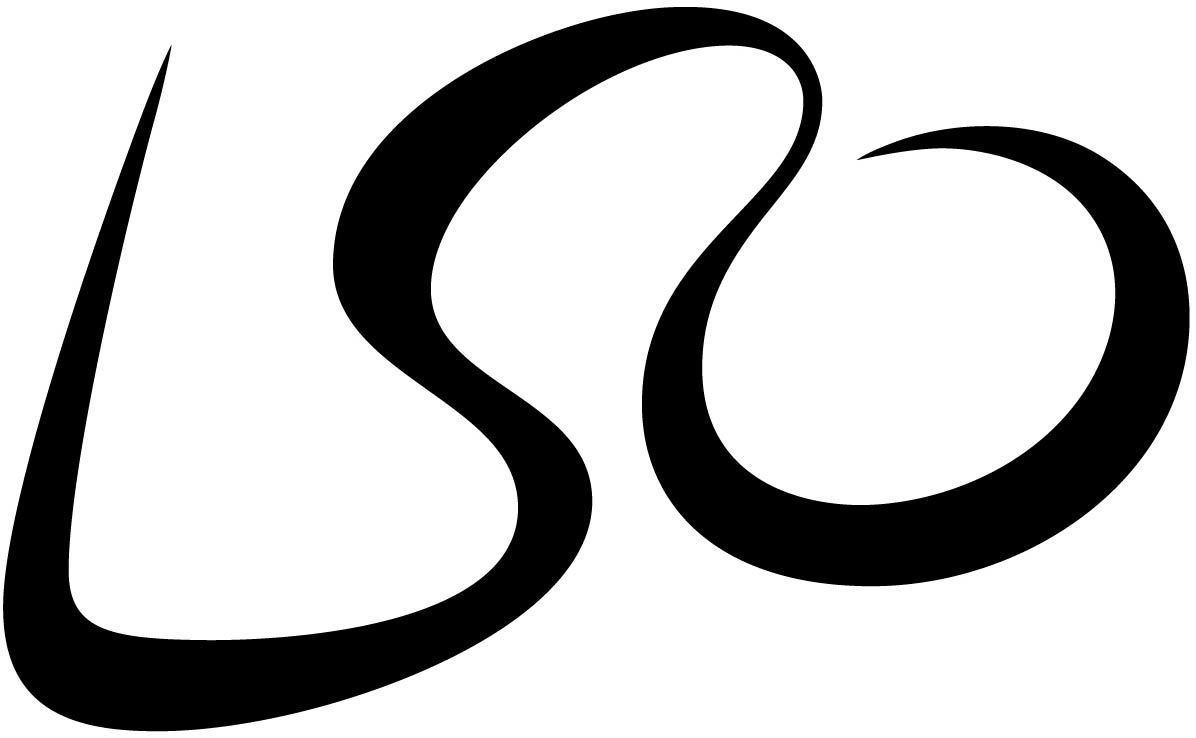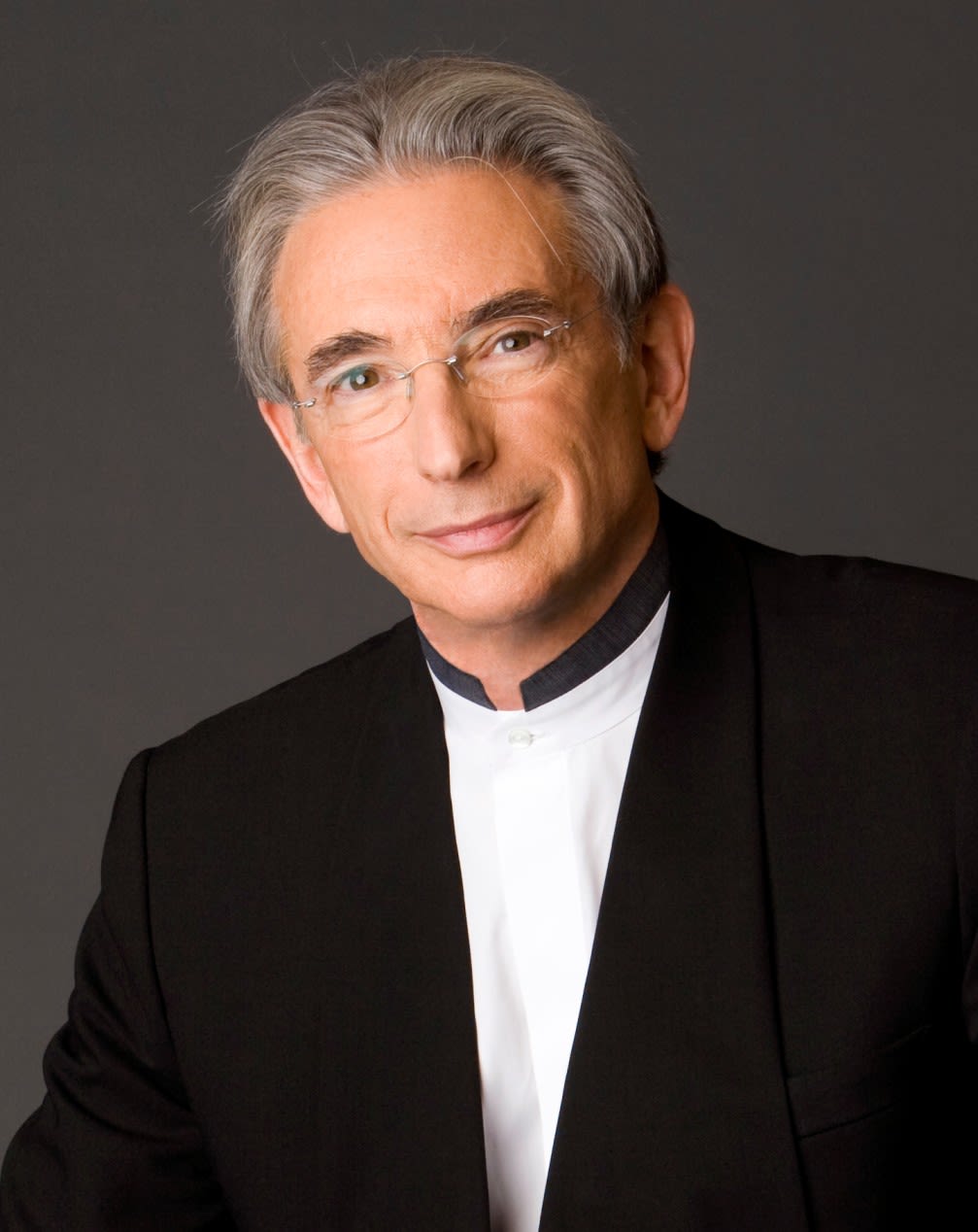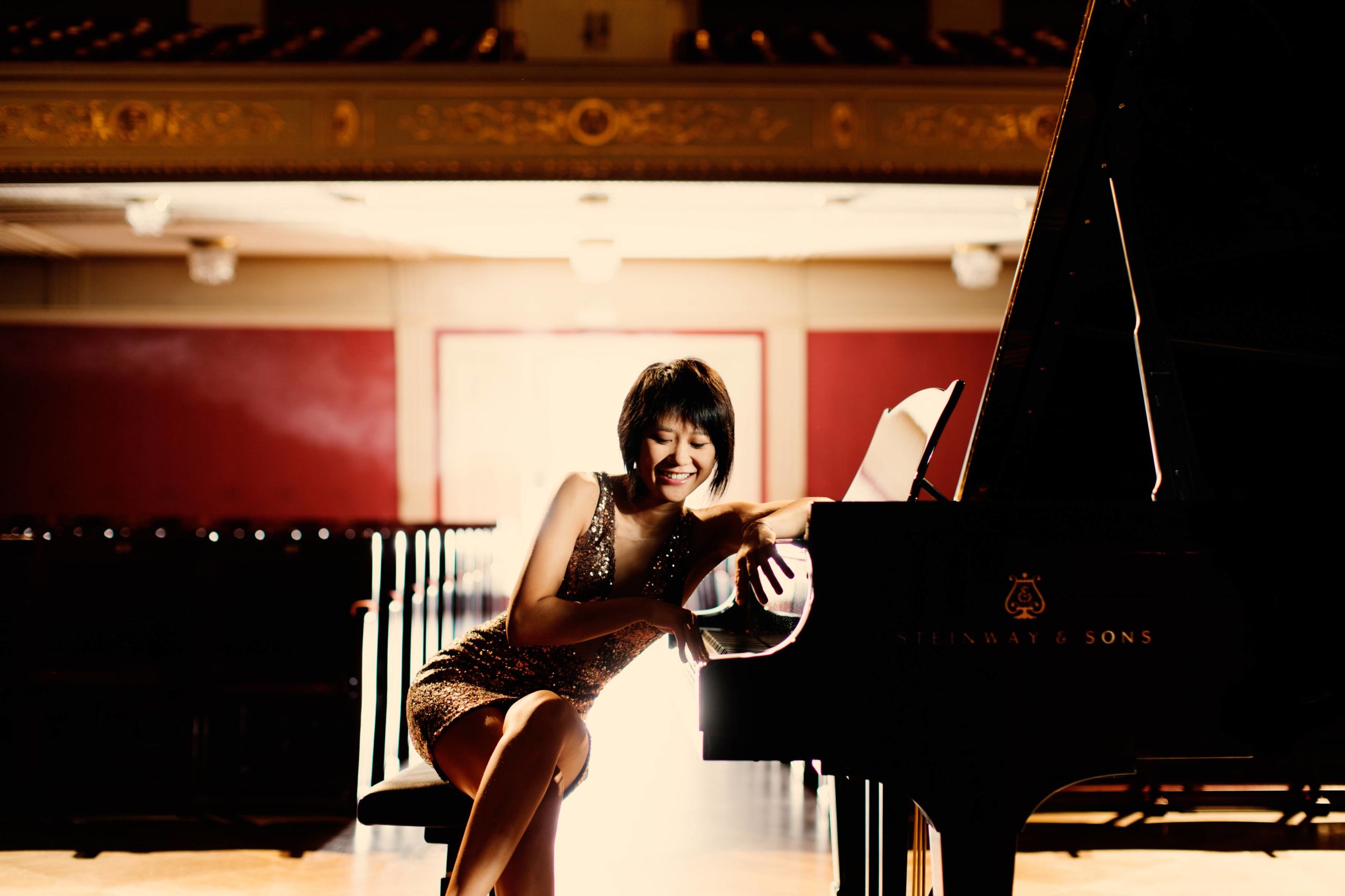London Symphony Orchestra
Copland, Shostakovich & Tchaikovsky

Welcome
A warm welcome to these LSO concerts. After 14 months away, it was wonderful last week to make our long-awaited return to our Barbican home, and to be able to reunite with audiences in person, sharing once again in the joy of live music. Sincere thanks to all of our supporters: your generosity has enabled us to continue sharing music with audiences across the globe through these challenging times, and now continues to assist our return to live performance and our recovery from the pandemic.
With these concerts we welcome back LSO Conductor Laureate Michael Tilson Thomas, who has been sorely missed over the past year. Across four concerts at the Barbican and LSO St Luke’s, he conducts music by Grieg and Copland, piano concertos by Rachmaninoff and Shostakovich, and symphonies by Beethoven and Tchaikovsky.
It is a pleasure to be joined also by soloist Yuja Wang, who has performed with the Orchestra and Michael Tilson Thomas regularly over the years, most recently in 2017 when she joined the Orchestra on tour in Europe. Following these London performances of Rachmaninoff’s and Shostakovich’s Second Piano Concertos, we look forward to Yuja Wang – and Michael Tilson Thomas – joining us for further concerts at Snape Maltings next week.
I hope you enjoy these performances. Our thanks to all of you, our audience members, for your support. It is a pleasure to be sharing in live music together again, and I look forward to welcoming you back to many more concerts in the months ahead. Next month we welcome back LSO Principal Guest Conductor François-Xavier Roth for concerts devoted to music of our time, particularly highlighting alumni of the LSO Panufnik Composers Scheme, including the UK premiere of Francisco Coll’s Violin Concerto with soloist Patricia Kopatchinskaja.

Kathryn McDowell CBE DL; Managing Director
Kathryn McDowell CBE DL; Managing Director
You can use your phone to view these notes during the concert. Use the menu icon in the top right of the screen to navigate.

Please Note
Phones should be switched to silent mode. We ask that you use your phone only for reading the notes during the music. Photography and audio/video recording are not permitted during the performance.
Print at Home
A reduced version of this programme is available to download and print at home.
Sunday 30 May 5.30pm, LSO St Luke's
Today's Programme
Copland Our Town – Suite
Shostakovich Piano Concerto No 2
Tchaikovsky Symphony No 2, 'Little Russian'
Michael Tilson Thomas conductor
Yuja Wang piano
London Symphony Orchestra
Support the LSO's Future
The importance of music and the arts has never been more apparent than in recent months, as we’ve been inspired, comforted and entertained throughout this unprecedented period.
As we emerge from the most challenging period of a generation, please consider supporting the LSO's Always Playing Appeal to sustain the Orchestra, allow us to perform together again on stage and to continue sharing our music with the broadest range of people possible.
Every donation will help to support the LSO’s future.
You can also donate now via text.
Text LSOAPPEAL 5, LSOAPPEAL 10 or LSOAPPEAL 20 to 70085 to donate £5, £10 or £20.
Texts cost £5, £10 or £20 plus one standard rate message and you’ll be opting in to hear more about our work and fundraising via telephone and SMS. If you’d like to give but do not wish to receive marketing communications, text LSOAPPEALNOINFO 5, 10 or 20 to 70085. UK numbers only.
Aaron Copland
Our Town – Suite
✒️1940 arr 1944 | ⏰10 minutes

Copland regarded 1939 as his 'break-out’ year. His ballet Billy The Kid was staged to considerable acclaim by Ballet Caravan in Chicago, while his first Hollywood film score, Of Mice and Men, won him an Academy Award nomination. Just a few months after its premiere, Copland was asked by the Hollywood producer Sol Lesser to compose the score for a forthcoming film of Thornton Wilder’s Our Town. Copland had already seen the stage play and greatly admired it, particularly as Grover’s Corners, its fictional setting, was closely modelled on the small New Hampshire town of Peterborough, home to the MacDowell Artists’ Colony, where Copland himself had spent time composing.
Wilder’s story concerns the harmonious lives of the town’s residents, and the romance between two neighbours, Emily (played by Martha Scott) and George (played by William Holden). In the original version, Emily dies following the birth of a child, but for the film Wilder agreed to change the ending, replacing her fatal illness with a dream sequence.
Our Town premiered in May 1940, and was nominated for three Oscars including Best Score. Copland wrote: 'For the film version, they were counting on the music to translate the transcendental aspects of the story. I tried for clean and clear sounds and in general used straight-forward harmonies and rhythms that would project the serenity and sense of security of the story’.
His limpid score, evoking homespun American life through the use of chorale-like New England hymn tunes, was subsequently adapted as a short, one-movement orchestral suite dedicated to Leonard Bernstein, who conducted its premiere in May 1944 with the Boston Pops orchestra. The film’s title theme, presented on flute and violins, recurs several times throughout the suite.
Note by Wendy Thompson
Aaron Copland
1900 – 1990 (United States)

Aaron Copland’s fellow composer Virgil Thomson once described his friend as the leader of a musical commando unit ready to do battle against the reactionary forces that occupied positions of power within the American musical establishment.
Throughout the 1930s, Copland produced a series of abstract, non-programmatic works that confirmed his reputation as an outstanding composer of ‘serious’ music, who need fear nothing by comparison with his European contemporaries. Liberated, perhaps, by the prevailing spirit of social protest and his own desire to reach large audiences, he gradually developed a simple, direct musical language that was harnessed to striking effect in his ballet scores Billy the Kid, Rodeo and Appalachian Spring.
Copland noted a distancing between composer and public:
'An entirely new public for music had grown up around the radio and phonograph,' he later recalled. 'It made no sense to ignore them and to continue writing as though they did not exist. I felt it was worth the effort to see if I couldn’t say what I had to say in the simplest possible terms.'
He later explored the possibilities of 12-note technique and embraced advanced compositional methods, defying those who wished to pigeon-hole his work.
Composer profile by Andrew Stewart
Dmitri Shostakovich
Piano Concerto No 2 in F Major Op 102
✒️1957 | ⏰20 minutes

1 Allegro
2 Andante
3 Allegro
Yuja Wang piano
Shostakovich composed six concertos altogether, but while the two violin concertos (both intended for David Oistrakh) and the two Cello Concertos (for Mstislav Rostropovich) count among his most searching, personal works, the piano concertos are very much on the lighter side. They also show the radical differences that Shostakovich’s approach to composition had undergone in 24 years.
The First Piano Concerto, for all its good humour, was a product of Russian post-revolutionary modernism where the high spirits are expressed through a kaleidoscope of teasing parodies. But by the time Shostakovich composed the Second Piano Concerto, he had undergone two official condemnations and had learned to avoid trouble by adopting a more restrained musical language, which in his darker and more serious works becomes a mask where classical forms and procedures are moulded to his own purposes.
That said, the Second Piano Concerto is one of the most straight-forward and uncomplicated pieces Shostakovich ever composed, its humour untinged by sarcasm or bitterness. He wrote it not for himself but for his son Maxim, who gave the first performance on his 19th birthday on 10 May 1957 (three years earlier, Shostakovich had written the little Concertino for Two Pianos for father and son to play together). Maxim was a fine pianist but never aimed to become a great virtuoso. Although the Concerto’s solo writing is always highly effective, it avoids the bravura and extreme difficulties of the First.
The Second Piano Concerto is as light-hearted as the First, though in a gentler and perhaps more innocent way. There is nothing provocative, controversial or experimental here, just the skill and imagination that Shostakovich devoted to all his music, whether deeply serious or intended mainly for entertainment. The Concerto’s outward shape is quite conventional, with a three-movement structure and clear-cut form, so that nothing disturbs its simplicity and directness.
The first movement is in a quick march tempo, its character set by the bassoon opening. The initial piano texture – left and right hands playing one or two octaves apart – is a common feature of the solo writing throughout the Concerto.
The second movement, with reduced orchestra, has the mood and textures of a nocturne. It leads directly into the high-spirited finale, where the basic duple metre is wittily subverted by the 7/8 metre of the secondary theme.
Note by Andrew Huth
Dmitri Shostakovich
1906 – 1975 (Russia)

After early piano lessons with his mother, Dmitri Shostakovich enrolled at the Petrograd Conservatoire in 1919. He announced his Fifth Symphony of 1937 as 'a Soviet artist's practical creative reply to just criticism'. A year before its premiere, he had drawn a stinging attack from the official Soviet mouthpiece Pravda, in which his initially successful opera Lady Macbeth of the Mtsensk District was condemned for its 'leftist bedlam' and extreme modernism. With the Fifth Symphony came acclaim not only from the Russian audience, but also from musicians and critics overseas.
Shostakovich lived through the first months of the German siege of Leningrad serving as a member of the auxiliary fire service. In July he began work on the first three movements of his Seventh Symphony, completing the defiant finale after his evacuation in October and dedicating the score to the city. A micro-filmed copy was despatched by way of Teheran and an American warship to the US, where it was broadcast by the NBC Symphony Orchestra and Toscanini.
In 1943 Shostakovich completed his Eighth Symphony, its emotionally shattering music compared by one critic to Picasso's Guernica. In 1948 Shostakovich and other leading composers, Prokofiev among them, were forced by the Soviet Cultural Commissar, Andrey Zhdanov, to concede that their work represented 'most strikingly the formalistic perversions and anti-democratic tendencies in music', a crippling blow to the composer's artistic freedom that was healed only after the death of Stalin in 1953. Shostakovich answered his critics later that year with the powerful Tenth Symphony, in which he portrays 'human emotions and passions', rather than the collective dogma of Communism.
Composer profile by Andrew Stewart
Pyotr Ilyich Tchaikovsky
Symphony No 2 in C minor Op 17, 'Little Russian'
✒️1872, rev 1879| ⏰32 minutes

1 Andante sostenuto – Allegro vivo
2 Andantino marziale, quasi moderato
3 Scherzo: Allegro molto vivace
4 Finale: Moderato assai – Allegro vivo
Tchaikovsky’s First Symphony, composed in his mid-20s, was a fine achievement for a composer with little experience of large-scale orchestral writing. It showed a spontaneous talent, and contained all the colour, drama and striking melody that listeners have always prized in his later music. Mendelssohn and Schumann were the closest models for its overall shape, although the music never sounds like either of these; Tchaikovsky was particularly careful to avoid sounding like Beethoven, whose shadow inhibited so many 19th-century symphonists.
Soon after completing the First Symphony, Tchaikovsky met Mily Balakirev – leader of the group of Russian nationalist composers based in St Petersburg that also included Rimsky-Korsakov, Borodin and Mussorgsky. It was Balakirev who encouraged the composition of Romeo and Juliet (1869–70), and with the Second Symphony, composed in 1872 and performed in Moscow and St Petersburg the following spring, it seemed that the young Tchaikovsky had identified himself closely with the nationalists’ goal of turning away from Western European models to create a specifically Russian symphonic style that would reflect the essence of native folk music. They particularly admired the way Tchaikovsky found ingenious methods of presenting his folk-like material, inventing accompaniments and variations that preserved the original character of melodies while showing them off from ever-varying perspectives.
The name occasionally attached to the Second Symphony, ‘Little Russian’, is due to the use of three Ukrainian folk tunes, though Tchaikovsky’s invention is so conditioned by his background that it is often hard to distinguish between borrowed and original themes. ‘As regards the Russian element in general in my music … I grew up in the backwoods, saturating myself from earliest childhood with the inexplicable beauty of the characteristics of Russian folksong.’ He wrote this around the time (1879–80) when he made a thorough revision of the symphony, in particular virtually re-composing the body of the first movement: it is this revised version that is generally played today. Despite his particularly Russian cast of mind, however, Tchaikovsky soon found that he had to distance himself from Balakirev’s circle, finding their attitude too dogmatic for his purposes.
The opening melody of the first movement, heard on solo horn and then bassoon, is the first of the Ukrainian themes. It is treated extensively against changing backgrounds, providing an introduction for the unobtrusive entry of the main allegro theme, which is shorter and more incisive. The Ukrainian theme’s reappearance in the development and coda is an emotional as well as formal device, stamping the entire movement with its character. The vigorous orchestration and bright wind writing reflects the influence of Berlioz.
The outer sections of the second movement are borrowed from the romantic opera Undine that Tchaikovsky had composed in 1869 and later mostly destroyed. Significantly, the opera was not on a Russian theme and (according to the composer himself) contained no specifically Russian material. The central section features a second Ukrainian tune, again presented against a background of changing accompaniments.
The third movement, a scherzo, is notable for its irregular phrasing: instead of the expected four- and eight-bar phrases, it is grouped in phrases of three and six bars, with several teasing dislocations. The inner trio section is at the same quick tempo, but with a change from triple to duple time, and features a folk-like (but apparently original) theme.
After grand phrases from full orchestra, a tiny and repetitive folk-tune called ‘Zhuravel’ (The Crane) emerges as the main theme of the finale. It is a simple tune, subjected to an ever more elaborate orchestral treatment with constantly changing orchestration, harmony, texture and accompaniment. A second theme in an oddly syncopated rhythm contrasts with its squareness, but in fact the very plainness of the ‘Crane’ theme throws Tchaikovsky’s virtuosity into high relief.
It was after playing through this finale to a gathering at Rimsky-Korsakov’s house in St Petersburg at Christmas 1872 that the proud composer wrote ‘the whole company almost tore me to pieces with rapture’.
Note by Andrew Huth
Pyotr Ilyich Tchaikovsky
1840 – 1893 (Russia)

Born in Kamsko-Votkinsk in the Vyatka province of Russia on 7 May 1840, Tchaikovsky’s father was a mining engineer, his mother of French extraction. In 1848 the family moved to the imperial capital, St Petersburg, where Pyotr was enrolled at the School of Jurisprudence. He overcame his grief at his mother’s death in 1854 by composing and performing, and music remained a diversion from his job – as a clerk at the Ministry of Justice – until he enrolled as a full-time student at the St Petersburg Conservatory in 1863. His First Symphony was warmly received at its St Petersburg premiere in 1868. Swan Lake, the first of Tchaikovsky’s three great ballet scores, was written in 1876 for Moscow’s Bolshoi Theatre. Between 1869 and the year of his death Tchaikovsky composed over 100 songs, cast mainly in the impassioned Romance style and textually preoccupied with the frustration and despair associated with love, conditions that characterised his personal relationships.
Tchaikovsky’s hasty decision to marry an almost unknown admirer in 1877 proved a disaster, his homosexuality combining strongly with his sense of entrapment. By now he had completed his Fourth Symphony, was about to finish his opera Eugene Onegin, and had attracted the considerable financial and moral support of Nadezhda von Meck, an affluent widow. She helped him through his personal crisis and in 1878 he returned to composition with the Violin Concerto. Tchaikovsky claimed that his Sixth Symphony represented his best work. The mood of crushing despair heard in all but the work’s third movement reflected the composer’s troubled state of mind. He died nine days after its premiere on 6 November.
Composer profile by Andrew Stewart
Artist Biographies

Michael Tilson Thomas
LSO Conductor Laureate
Michael Tilson Thomas is Music Director of the San Francisco Symphony, Founder and Artistic Director of the New World Symphony and Conductor Laureate of the London Symphony Orchestra. Born in Los Angeles, he is the third generation of his family to follow an artistic career. His grandparents, Boris and Bessie Thomashefsky, were founding members of the Yiddish Theater in America. His father, Ted Thomas, was a producer in the Mercury Theater Company in New York before moving to Los Angeles where he worked in films and television. His mother, Roberta Thomas, was the head of research for Columbia Pictures.
Michael Tilson Thomas began his formal studies at the University of Southern California where he studied piano with John Crown and conducting and composition with Ingolf Dahl. At 19 he was named Music Director of the Young Musicians Foundation Debut Orchestra. He worked with Stravinsky, Boulez, Stockhausen and Copland on premieres of their compositions at Los Angeles’ Monday Evening Concerts.
In 1969, after winning the Koussevitzky Prize at Tanglewood, he was appointed Assistant Conductor of the Boston Symphony Orchestra. That year he also made his New York debut with the Boston Symphony and gained international recognition after replacing Music Director William Steinberg in mid-concert. He was later appointed Principal Guest Conductor of the Boston Symphony Orchestra where he remained until 1974. He was Music Director of the Buffalo Philharmonic from 1971 to 1979 and a Principal Guest Conductor of the Los Angeles Philharmonic from 1981 to 1985.
His guest conducting includes appearances with the major orchestras of Europe and the United States. His recorded repertoire of more than 120 discs includes works by composers such as Bach, Beethoven, Mahler, Prokofiev and Stravinsky as well as his pioneering work with the music of Charles Ives, Carl Ruggles, Steve Reich, John Cage, Ingolf Dahl, Morton Feldman, George Gershwin, John McLaughlin and Elvis Costello. He recently finished recording the complete orchestral works of Gustav Mahler with the San Francisco Symphony.
Michael Tilson Thomas’s television work includes a series with the London Symphony Orchestra for the BBC, the television broadcasts of the New York Philharmonic Young People’s Concerts from 1971 to 1977 and numerous productions on PBS Great Performances. Tilson Thomas and the San Francisco Symphony produced a multi-tiered media project, Keeping Score, which includes a television series, web sites, radio programs and programs in schools.
In February 1988 he inaugurated the New World Symphony, an orchestral academy for graduates of prestigious music programmes. New World Symphony graduates have gone on to major positions in orchestras worldwide.
As Principal Conductor of the London Symphony Orchestra from 1988 to 1995, Michael Tilson Thomas led the orchestra on regular tours in Europe, the United States and Japan as well as at the Salzburg Festival. In London he and the orchestra have mounted major festivals focusing on the music of Steve Reich, Gershwin, Brahms, Tōru Takemitsu, Rimsky-Korsakov and the School of St Petersburg, Debussy and Mahler. As Conductor Laureate of the LSO, he continues to lead the orchestra in concerts in London and on tour.
Michael Tilson Thomas is a Chevalier dans l’ordre des Arts et des Lettres of France, was Musical America’s Musician of the Year and Conductor of the Year, Gramophone’s Artist of the Year and has been profiled on CBS’s 60 Minutes and ABC’s Nightline. He has won eleven Grammy Awards for his recordings. In 2008 he received the Peabody Award for his radio series for SFS Media, The MTT Files. In 2010, President Obama awarded him with the National Medal of Arts, the highest award given to artists by the United States Government. For his lifetime artistic achievements, he was selected to receive the 2019 Kennedy Center Honors.
Yuja Wang
Piano
Critical superlatives and audience ovations have continuously followed Yuja Wang’s dazzling career. Recent highlights for the Beijing-born pianist have included an 'Artist Spotlight' series at the Barbican Centre, including the first London performance of John Adams’ newest piano concerto (premiered by her in Spring 2019) titled Must the Devil Have All the Good Tunes? with the Los Angeles Philharmonic and Gustavo Dudamel; and recitals with cellist Gautier Capuçon and clarinetist Andreas Ottensamer. In Autumn 2019 she toured China with the Vienna Philharmonic, presenting concerts in Macao, Guangzhou, Shanghai and Wuhan.
Yuja Wang's international breakthrough came in 2007 when she
replaced Martha Argerich as soloist with the Boston Symphony Orchestra. She later
signed an exclusive contract with Deutsche Grammophon and has since established
her place among the world’s leading artists, with a succession of critically acclaimed
performances and recordings.
Yuja was named Musical America’s Artist of the Year in 2017.
London Symphony Orchestra
The London Symphony Orchestra was established in 1904, and is built on the belief that extraordinary music should be available to everyone, everywhere.
Through inspiring music, educational programmes and technological innovations, the LSO’s reach extends far beyond the concert hall.
Visit our website to find out more.

On Stage
Leader
Roman Simovic
First Violins
Carmine Lauri
Clare Duckworth
Ginette Decuyper
Gerald Gregory
Maxine Kwok
William Melvin
Elizabeth Pigram
Claire Parfitt
Laurent Quénelle
Harriet Rayfield
Sylvain Vasseur
Second Violins
David Alberman
Thomas Norris
Sarah Quinn
David Ballesteros
Matthew Gardner
Alix Lagasse
Iwona Muszynska
Andrew Pollock
Paul Robson
Violas
Edward Vanderspar
Gillianne Haddow
Malcolm Johnston
Anna Bastow
Germán Clavijo
Stephen Doman
Carol Ella
Robert Turner
Cellos
Rebecca Gilliver
Alastair Blayden
Jennifer Brown
Noël Bradshaw
Daniel Gardner
Double Basses
Colin Paris
Patrick Laurence
Matthew Gibson
Joe Melvin
José Moreira
Flutes
Gareth Davies
Julian Sperry
Piccolo
Sharon Williams
Oboes
Olivier Stankiewicz
Rosie Jenkins
Cor Anglais
Sarah Harper
Clarinets
Chris Richards
Chi-Yu Mo
Bassoons
Rachel Gough
Dominic Tyler
Horns
Timothy Jones
Angela Barnes
Alexander Edmundson
Jonathan Maloney
Andrew Budden
Trumpets
James Fountain
Kaitlin Wild
Catherine Knight
Trombones
Simon Johnson
Richard Ward
Bass Trombone
Paul Milner
Tuba
Ben Thomson
Timpani
Nigel Thomas
Percussion
Neil Percy
David Jackson

Programme Contributors
Wendy Thompson studied at the Royal College of Music, before taking an MMus in musicology at King’s College, London. In addition to writing about music she is Executive Director of Classic Arts Productions, a major supplier of independent programmes to BBC Radio.
Andrew Stewart is a freelance music journalist and writer. He is the author of The LSO at 90, and contributes to a wide variety of specialist classical music publications.
Andrew Huth is a musician, writer and translator who writes extensively on French, Russian and Eastern European music.
The London Symphony Orchestra is hugely grateful to all the Patrons and Friends, Corporate Partners, Trusts and Foundations, and other supporters who make its work possible.
The LSO's return to work is generously supported by the Art Mentor Foundation Lucerne, DnaNudge and the Weston Culture Fund.

Garfield Weston Foundation; Here for Culture
Garfield Weston Foundation; Here for Culture

Art Mentor Foundation Lucerne; dnaNudge
Art Mentor Foundation Lucerne; dnaNudge

Culture Mile; City of London; Arts Council England
Culture Mile; City of London; Arts Council England


